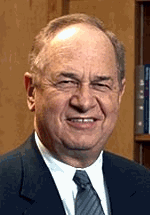 Usually New Years are frightful... another year has passed by too quickly! But I felt much more relaxed and at peace this time round...
Usually New Years are frightful... another year has passed by too quickly! But I felt much more relaxed and at peace this time round...After Agora wrapped up a hectic December schedule with the postmodernism workshop, I could rest with a deep sense of satisfaction. Anything I could squeeze into the remaining days of 2005 would be a nice bonus but it has been an unusually fruitful year.
So I finally took time to finish reading Walter Kaiser's "Towards an Old Testament Theology", long-delayed assignment.
Scholars have searched for decades for the central theme of the diverse OT materials spanning hundreds of years. Just an idea how complex this is, imagine the current debates on the 'center' of Pauline theology... but instead of epistles, we are talking about apocalyptic, laws, history, wisdom literature... instead of one person's theology living over a few decades, we have almost two thousand years of diverse authors.
 Kaiser proposed that 'The Promise' as the unifying principle which binds such diverse writings with an internal coherence. And this is not a framework imposed on the materials, rather exegeted from the text by taking seriously the historical timeframe, progressive development of revelation. I especially like how the book traces the seed promise to Abraham expands and envelops the Davidic promise and ultimately, the New covenant. But I found the writing style a bit dry :D Glad that I ploughed through it anyway.
Kaiser proposed that 'The Promise' as the unifying principle which binds such diverse writings with an internal coherence. And this is not a framework imposed on the materials, rather exegeted from the text by taking seriously the historical timeframe, progressive development of revelation. I especially like how the book traces the seed promise to Abraham expands and envelops the Davidic promise and ultimately, the New covenant. But I found the writing style a bit dry :D Glad that I ploughed through it anyway.
Comments
You can't exactly blame a scholar for not writing like J.K. Rowling, now can you? =)
Anyway, I seem to delight in dry writing, especially concerning theology. It kind chills you out...for me at least.
I luv those who could combine both.. i.e. NT Wright, (he made me laugh out loud in a review of JD Crossan, who is another fantastic author of page-turners), Brueggemann (sometimes), Stephen Westerholm (luv it!), even Marcus Borg!
Someone once said that evangelicals are good at getting their message right, but not always good at putting it across :)
(And of course there's...err...Pinnock, although one might say he's got more heart than mind, *grin*)
won't make it on my Christmas list of give-away books! heheh...